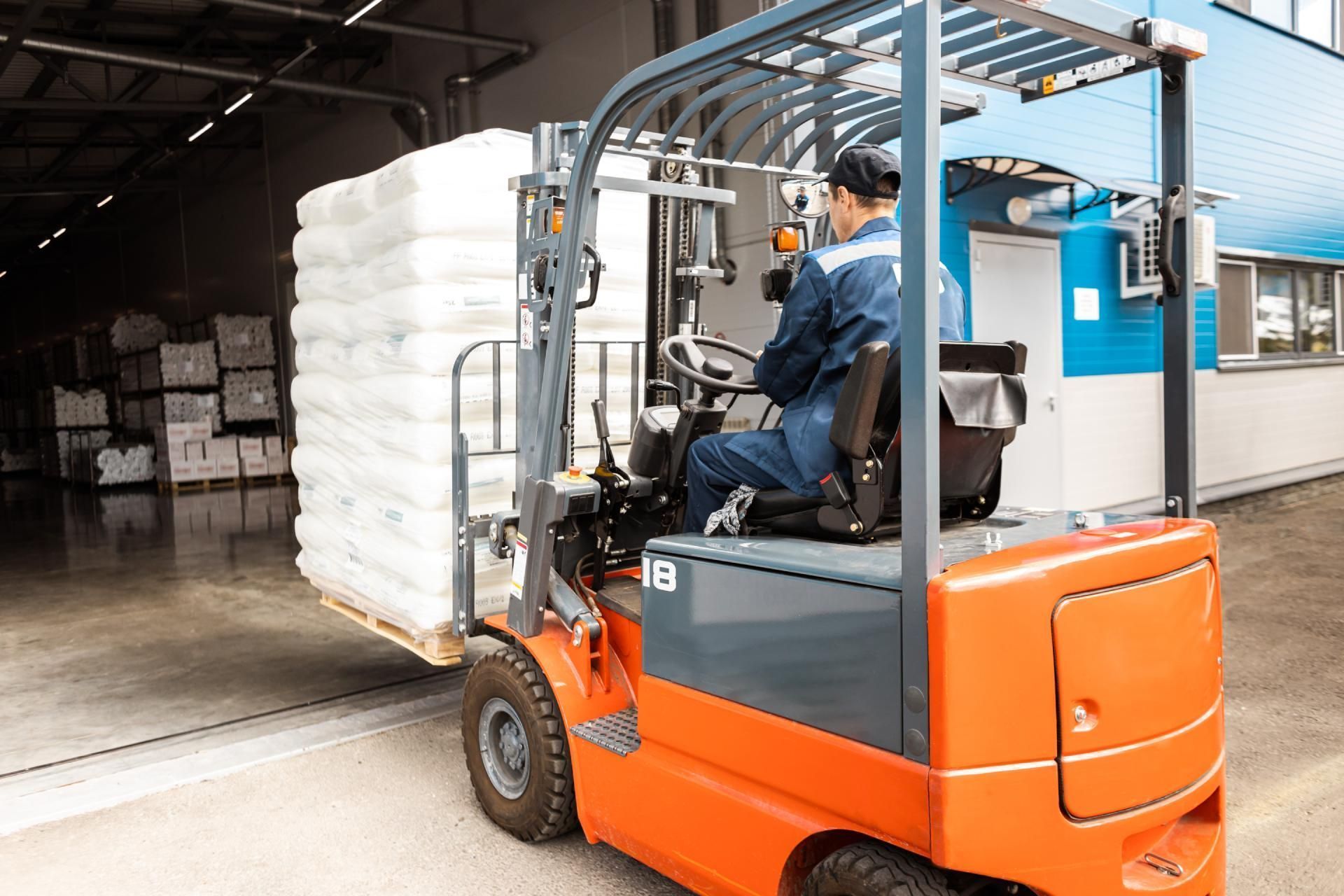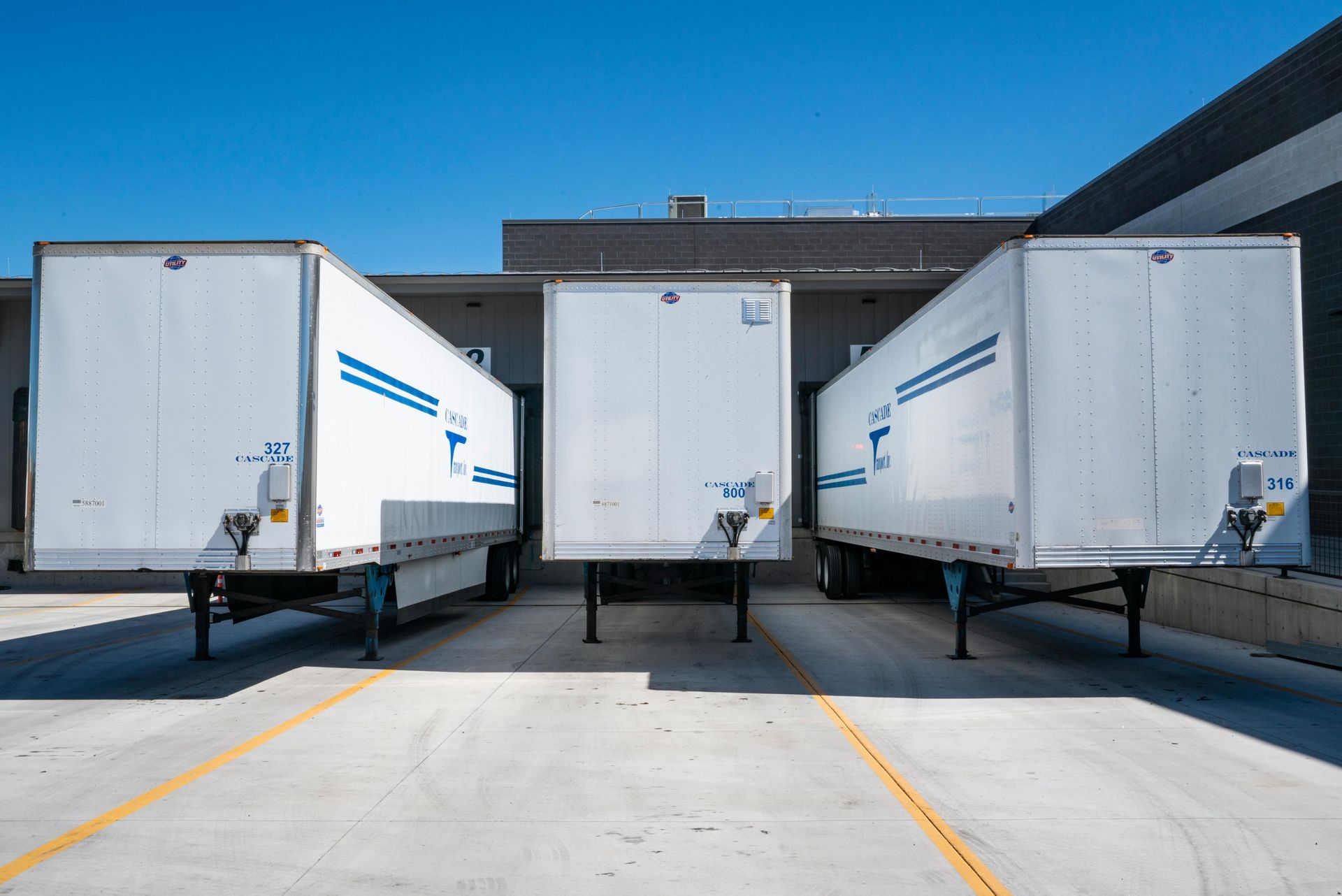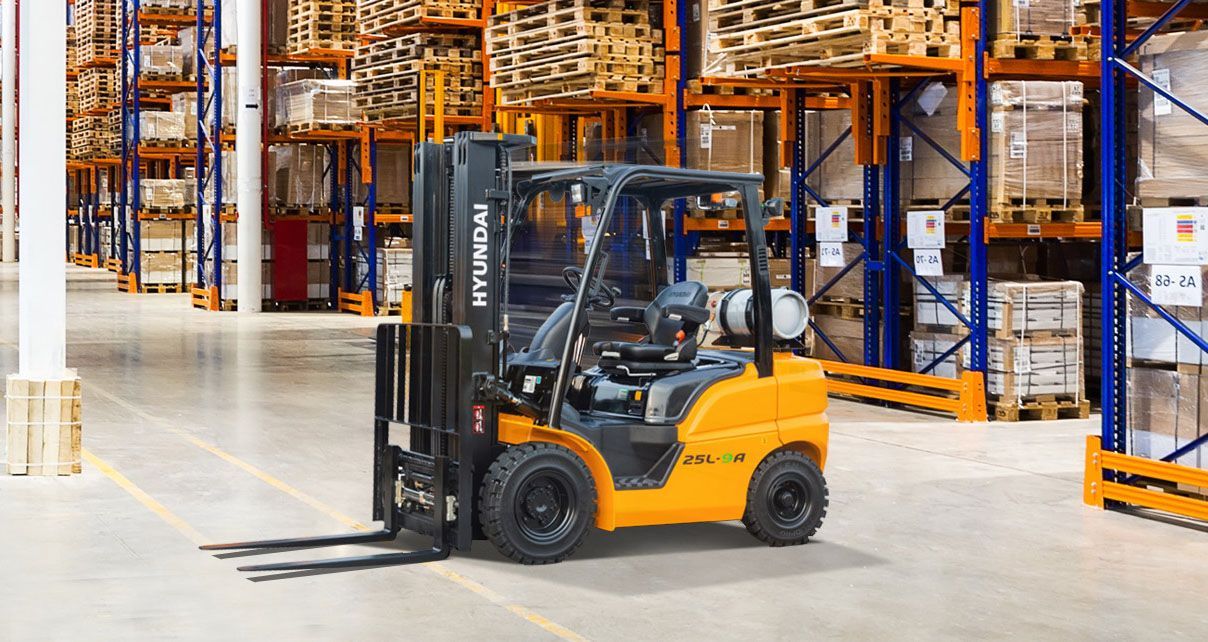How Different Industries Use Forklifts and Industrial Equipment
Forklifts and other industrial equipment are essential tools in the modern economy, supporting operations across many industries.
From construction to warehousing, these machines handle the heavy lifting, transporting, and organizing needed to maintain efficient workflows.
This article will explore how different sectors utilize forklifts and related equipment, underscoring their impact on productivity, safety, and cost-effectiveness.
Warehousing and Distribution
Forklifts are arguably the most critical daily equipment in warehousing and distribution. These facilities often require quick and efficient movement of goods, particularly as e-commerce demand surges.
Warehouses use forklifts primarily for unloading and loading trucks, moving pallets, and placing items on high shelves. Common choices in the industry include Electric, Reach Trucks, and Order Pickers.
- Electric Forklifts: These are ideal for indoor environments due to their lower emissions and quieter operation. Many warehouses choose electric forklifts for indoor operations where ventilation is limited and noise levels are a critical consideration.
- Reach Trucks and Order Pickers: These forklifts are designed for narrow aisles and high stacking, maximizing storage density in warehouses with limited space.
Efficient forklift operation allows warehouses to meet fast-paced shipping demands while reducing the strain on workers; it also optimizes inventory management by facilitating quick retrieval and storage.
Manufacturing
In manufacturing, forklifts and industrial trucks are essential for handling raw materials, moving products between production stages, and managing finished goods. Due to the diverse nature of manufacturing facilities, many manufacturers tend to utilize counterbalance forklifts, side loaders, and telescopic handlers.
- Counterbalance Forklifts: These are favorites for transporting heavy materials across factory floors. Their balanced structure, where weight at the back counteracts the load, makes them ideal for handling various goods and materials.
- Side Loaders and Telescopic Handlers: These specialized forklifts can handle long, bulky materials like pipes and lumber, which are common in steel manufacturing and construction sectors.
Material handling equipment is essential in manufacturing because it facilitates smooth workflow between processes, prevents bottlenecks, and minimizes manual labor.
Construction
The construction industry heavily relies on industrial equipment, with forklifts pivotal in moving materials across worksites. Construction projects often require forklifts to be durable and adaptable to rugged outdoor environments. You'll typically find rough-terrain forklifts, telehandlers, skid steers, and backhoes on the job site.
- Rough Terrain Forklifts: These are designed for uneven ground and challenging terrains, making them perfect for construction sites. With large, durable tires and increased ground clearance, they can easily navigate rocky or muddy areas while carrying heavy loads.
- Telehandlers (Telescopic Handlers): These versatile machines have an extendable arm that allows operators to reach high places safely. They are commonly used for lifting pallets of bricks, tiles, and other heavy materials to higher floors of buildings.
- Skid Steer Loaders and Backhoes: These multi-purpose machines are not strictly forklifts but are essential for construction. They're used for digging, moving material, and clearing debris, increasing efficiency and reducing construction site labor demands.
With tight project timelines, these machines improve construction productivity, enabling workers to seamlessly manage material flow and project requirements.
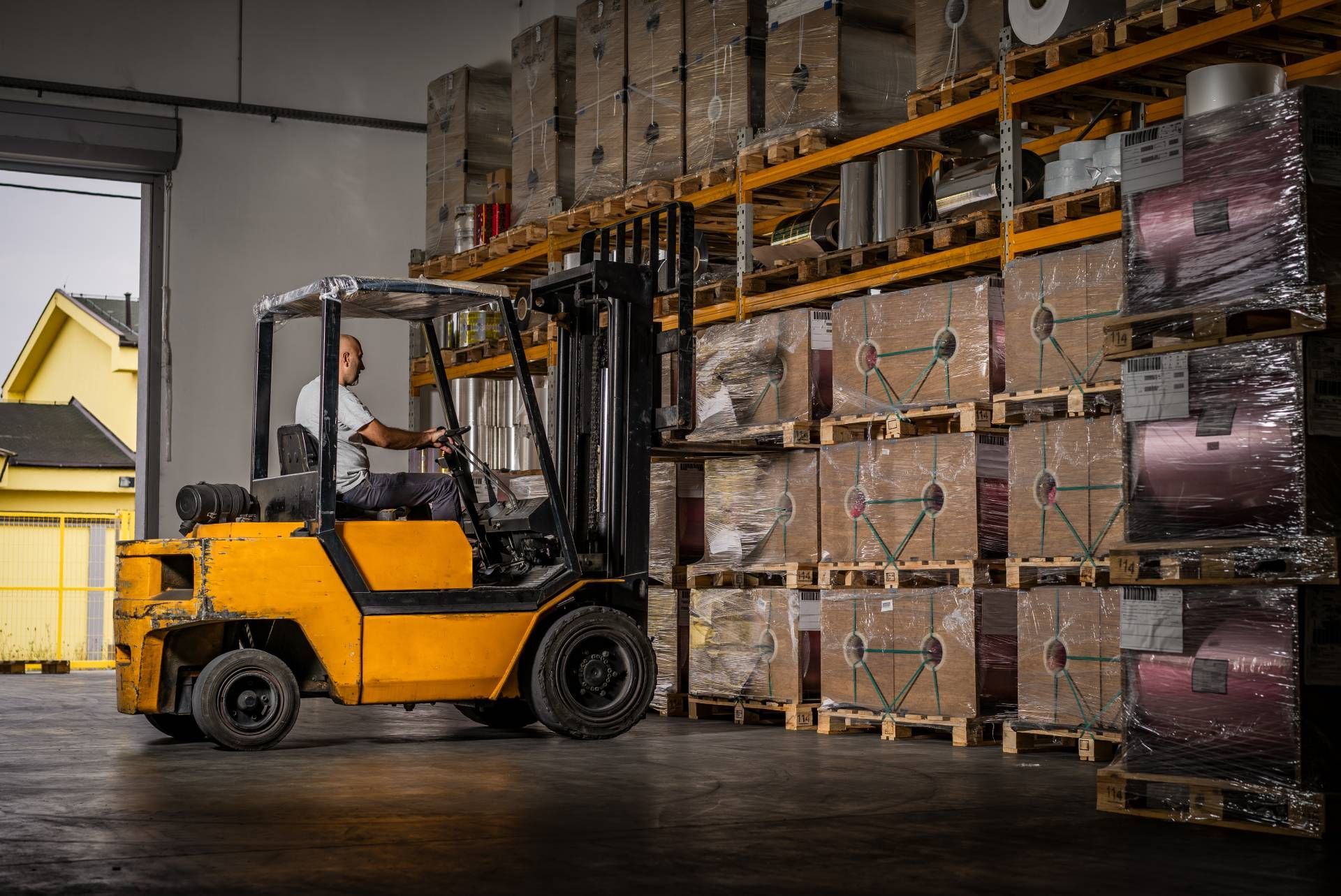
Retail and Big Box Stores
Forklifts are crucial for managing inventory in retail, particularly in big box stores and supermarkets. Due to their vast array of stock and high turnover rates, these facilities require constant replenishment and rearrangement of products and thus typically employ pallet jacks, walkie stackers, and narrow aisle forklifts.
- Pallet Jacks and Walkie Stackers: These are commonplace for unloading deliveries and organizing inventory in storage rooms. They're compact, maneuverable, and ideal for indoor spaces.
- Narrow Aisle Forklifts: Used in the warehouse sections of large stores, narrow aisle forklifts can operate in tight spaces, allowing for high-density storage.
Retail forklifts allow employees to handle stock efficiently, ensuring that shelves are well-stocked for customers. This equipment is crucial for moving heavy, bulky items like pallets of bottled beverages, furniture, and seasonal merchandise, helping stores meet customer demand smoothly.
Agriculture
In agriculture, forklifts are essential for handling feed, fertilizer, harvested crops, and equipment. The forklifts commonly used in farming include various tractor attachments, telescopic handlers, compact forklifts, and skid steers.
- Tractor Attachments and Telescopic Handlers: Telescopic handlers, commonly known as "telehandlers,” are widely used on farms to stack hay bales, move large feed containers, and transport other bulky loads. Their reach is beneficial for high stacking.
- Compact Forklifts and Skid Steers: Smaller, maneuverable forklifts and skid steers are ideal for maneuvering within confined spaces such as barns or smaller storage sheds, providing efficiency without damaging goods or infrastructure.
By mechanizing traditionally manual labor, forklifts help farmers manage larger volumes and heavier loads, improving the speed of daily tasks like feeding livestock and harvesting produce.
Recycling and Waste Management
Forklifts and industrial equipment are vital to recycling facilities and waste management. Heavy, bulky, or awkward materials need sorting, moving, and processing in these facilities, which requires specific material handling machines.
- High-Capacity Forklifts: These can handle heavy loads, including stacks of recyclables, metal scraps, and other dense materials.
- Specialized Loaders and Crushers: Often equipped with lifting attachments, loaders, and crushers sort and compact materials before recycling.
In this sector, forklifts and equipment help minimize the time needed to handle waste, improve recycling efficiency, and reduce manual lifting, which can be labor-intensive and hazardous.
Logistics and Freight Transportation
In logistics, forklifts are critical to transferring goods from warehouses to vehicles like trucks, ships, and planes. Forklifts here are often required to manage large loads quickly and safely to minimize downtime.
- Heavy-Duty Forklifts and Container Handlers: These are used at ports and rail yards to move large containers, efficiently loading and unloading massive shipments.
- Electric and Gas-Powered Forklifts: These are a standard pick within the logistics world and are ideal for general loading, unloading, and packing operations within logistics hubs.
Logistics relies on forklifts to move goods swiftly and safely, minimizing costly delays and enhancing supply chain efficiency.
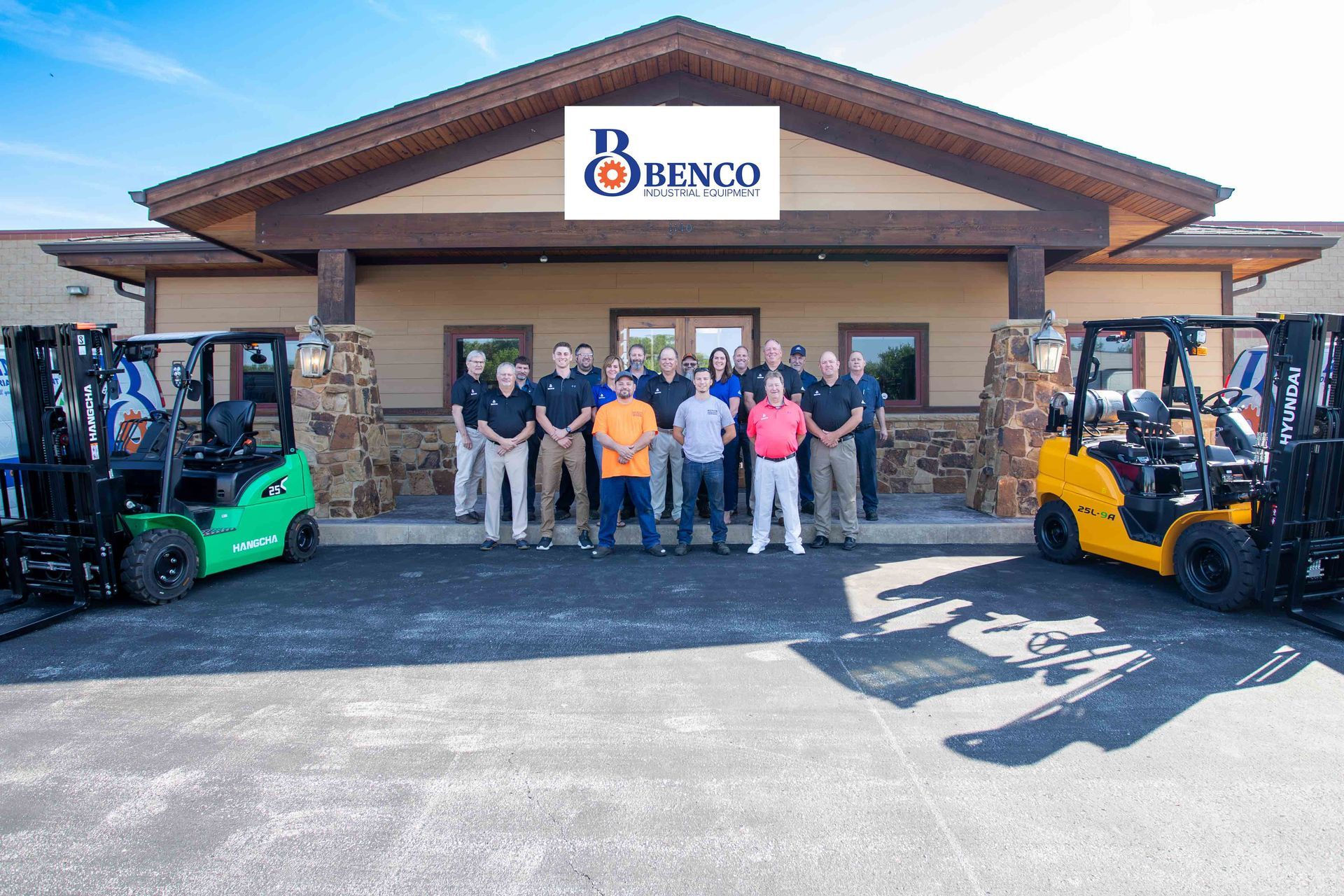
Get In Touch With Benco Industrial
From agriculture to warehousing, forklifts and industrial equipment enable businesses to operate at scale, improve safety, and streamline complex workflows. Each industry utilizes these machines uniquely based on its specific needs, and understanding their role can help companies choose the right equipment to boost productivity and meet operational demands.
As technology advances, we can expect forklifts and industrial equipment to become even more essential across a broader range of industries, making them indispensable to the world's economic infrastructure.
Our Benco Industrial Equipment team offers personalized assistance and consultation to help you find the best solutions for your warehouse needs.
Contact us today to explore our range of industrial equipment and services and take the first step toward improving your warehouse operations.


